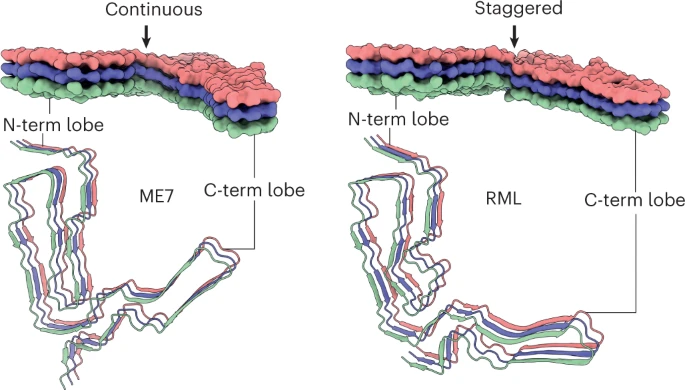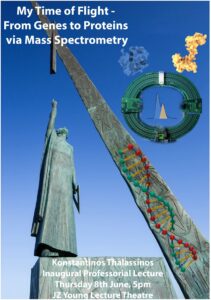Christine Orengo and John Christodoulou will be hosting a seminar by Dr Stephen Fried on 18th September 2023.
Speaker: Dr Stephen Fried, John Hopkins University
Date: Monday, 18th September 2023
Time: 1-2pm
Location: Birkbeck Central Building, Room BCB307
Title: How to Fold Every Protein – Proteome-Wide Measurements of Folding Call for a Post-Anfinsen Paradigm
Abstract:
Though protein folding has been at the heart of biophysical research for several decades, our knowledge of the topic is deep but narrow – we “know” a lot about a sparse set of “model” proteins that conform to Anfinsen’s thermodynamic hypothesis. Leveraging the power of structural proteomics, work in our lab has endeavored to interrogate protein folding and refolding globally, sensitively, and (for some applications) in vivo. We found that many E. coli proteins cannot efficiently return to their native structures following complete denaturation, and nonrefoldable proteins over-represent a particular set of biophysical and topological features that have been traditionally excluded from folding research. Proteins from yeast are strikingly more refoldable than E. coli proteins despite their greater size and complexity, a difference that we find can be attributed to the higher levels of intrinsic disorder in yeast proteins and their requirement for facile retrieval from biomolecular condensates. Nonrefoldability is connected to and explains a broad range of phenomena, such as the requirement of certain proteins to fold cotranslationally and kinetic stability, and may explain – in part – the molecular basis of cognitive decline associated with aging.
About the speaker:
Stephen Fried is a native of Kansas City. He received two S.B. degrees (2009) from MIT in chemistry and physics and completed his doctoral training at Stanford under the mentorship of Prof. S. G. Boxer in 2014. As a graduate student, Stephen’s research focused on understanding the physical principles underpinning enzymes’ catalytic power. From 2014 to 2018, Stephen was a Junior Research Fellow of King’s College and conducted research at the MRC Laboratory of Molecular Biology in Cambridge, United Kingdom. In Cambridge, his research focus shifted to chemical and synthetic biology. Stephen joined the Department of Chemistry at Johns Hopkins University in 2018 as an Assistant Professor, where he also holds appointments in the Departments of Biophysics and Biology. His lab develops and applies tools in structural proteomics to study protein folding globally, sensitively, and with high structural resolution. Stephen has been the recipient of the HFSP Young Investigator Award, NIH Director’s New Innovator Award, and a Cottrell Scholarship. In 2023, he was named a Future of Biophysics speaker by the Biophysical Society.



